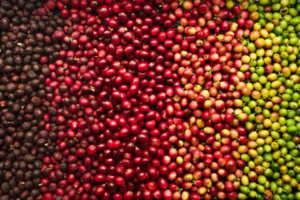In the world of coffee enthusiasts, there is a growing interest in specialty coffee, which offers a unique and delightful experience to the discerning palate. However, with the rising popularity of specialty coffee, the market has become flooded with claims of authenticity and quality. To ensure that consumers get what they pay for and to support ethical coffee practices, certification plays a crucial role in identifying genuine specialty coffee. In this article, we will delve into the importance of certification in distinguishing legitimate specialty coffee, the benefits it brings to both consumers and producers, and how it fosters sustainability in the coffee industry.
Understanding Specialty Coffee
Specialty coffee goes beyond the conventional cup of joe; it is an exceptional class of coffee beans that exhibits distinct flavors, aromas, and overall superior quality. These unique characteristics are a result of various factors, including the coffee plant variety, growing conditions, harvesting methods, and meticulous processing. Specialty coffee is often sourced from specific regions worldwide, each offering a terroir that imparts its unique essence to the beans.
The Challenge of Identifying Authentic Specialty Coffee
As the demand for specialty coffee surges, so does the risk of fraudulent claims and misrepresentation. Without proper certification, consumers and even coffee industry professionals might find it challenging to distinguish genuine specialty coffee from mediocre or even low-quality coffee. Mislabeling and deceptive marketing practices can lead to disappointing experiences for coffee enthusiasts and create a negative reputation for specialty coffee as a whole.
The Role of Certification in Ensuring Authenticity
Certification plays a pivotal role in maintaining the integrity of specialty coffee. Recognized certification bodies like the Specialty Coffee Association (SCA) or Rainforest Alliance employ rigorous evaluation processes to identify authentic specialty coffee. These evaluations encompass the entire coffee supply chain, from the coffee farms to the roasters and retailers, ensuring that each stage adheres to the strictest quality and sustainability standards.
Ensuring Quality for Consumers
For consumers, certified specialty coffee guarantees a delightful and consistent experience. Certifications indicate that the coffee has been meticulously sourced, processed, and roasted, preserving its unique flavors and aromas. By purchasing certified specialty coffee, consumers support ethical and sustainable practices while enjoying the rich rewards of a superior cup of coffee.
Empowering Coffee Producers
Certification programs not only benefit consumers but also provide invaluable support to coffee producers, especially those from developing regions. Through compliance with certification standards, coffee farmers gain access to valuable knowledge, training, and resources to improve their cultivation and processing methods. Additionally, certifications often lead to increased market opportunities and better prices for the producers, thereby improving their livelihoods and promoting economic sustainability within their communities.
Fostering Sustainability in the Coffee Industry
Sustainability is a cornerstone of the specialty coffee movement. Certified specialty coffee often comes from farms that employ environmentally friendly practices, such as shade-grown cultivation, water conservation, and responsible waste management. Moreover, certifications encourage fair labor practices, ensuring that coffee farm workers receive fair wages and safe working conditions.
Supporting Biodiversity and Ecosystems
Many certification programs focus on protecting biodiversity and preserving ecosystems. By choosing certified specialty coffee, consumers contribute to the conservation of fragile habitats and the promotion of biodiversity, as some certifications require compliance with specific environmental preservation guidelines.
Conclusion:
The journey of a coffee bean from a farm to a delightful cup is a complex and intricate process. In this journey, certification acts as a compass, guiding both consumers and producers towards the path of authenticity and sustainability. By choosing certified specialty coffee, consumers can rest assured that they are savoring a genuine and remarkable coffee experience while supporting ethical practices. At the same time, coffee producers benefit from increased market opportunities and resources to enhance their coffee cultivation techniques. As we continue to appreciate and embrace the pleasures of specialty coffee, let us recognize and embrace the crucial role that certification plays in nurturing the growth of a thriving, ethical, and sustainable coffee industry.



